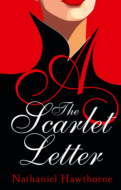Kitabı oku: «Tales of Horror / Страшные рассказы», sayfa 2
At this instant, I know not what sudden self-possession came over my spirit. Staggering as far aft as I could, I awaited fearlessly the ruin that was to overwhelm. Our own vessel was at length ceasing from her struggles, and sinking with her head to the sea. The shock of the descending mass struck her, consequently, in that portion of her frame which was already under water, and the inevitable result was to hurl me, with irresistible violence, upon the rigging of the stranger.
As I fell, the ship hove in stays, and went about; and to the confusion ensuing I attributed my escape from the notice of the crew. With little difficulty I made my way unperceived to the main hatchway, which was partially open, and soon found an opportunity of secreting myself in the hold. Why I did so I can hardly tell. An indefinite sense of awe, which at first sight of the navigators of the ship had taken hold of my mind, was perhaps the principle of my concealment. I was unwilling to trust myself with a race of people who had offered, to the cursory glance I had taken, so many points of vague novelty, doubt, and apprehension. I therefore thought proper to contrive a hiding-place in the hold. This I did by removing a small portion of the shifting-boards, in such a manner as to afford me a convenient retreat between the huge timbers of the ship.
I had scarcely completed my work, when a footstep in the hold forced me to make use of it. A man passed by my place of concealment with a feeble and unsteady gait. I could not see his face, but had an opportunity of observing his general appearance. There was about it an evidence of great age and infirmity. His knees tottered beneath a load of years, and his entire frame quivered under the burthen. He muttered to himself, in a low broken tone, some words of a language which I could not understand, and groped in a corner among a pile of singular-looking instruments, and decayed charts of navigation. His manner was a wild mixture of the peevishness of second childhood, and the solemn dignity of a God. He at length went on deck, and I saw him no more.
* * *
A feeling, for which I have no name, has taken possession of my soul – a sensation which will admit of no analysis, to which the lessons of bygone times are inadequate, and for which I fear futurity itself will offer me no key. To a mind constituted like my own, the latter consideration is an evil. I shall never – I know that I shall never – be satisfied with regard to the nature of my conceptions. Yet it is not wonderful that these conceptions are indefinite, since they have their origin in sources so utterly novel. A new sense – a new entity is added to my soul.
* * *
It is long since I first trod the deck of this terrible ship, and the rays of my destiny are, I think, gathering to a focus. Incomprehensible men! Wrapped up in meditations of a kind which I cannot divine, they pass me by unnoticed. Concealment is utter folly on my part, for the people will not see. It was but just now that I passed directly before the eyes of the mate; it was no long while ago that I ventured into the captain's own private cabin, and took thence the materials with which I write, and have written. I shall from time to time continue this journal. It is true that I may not find an opportunity of transmitting it to the world, but I will not fall to make the endeavour. At the last moment I will enclose the MS. in a bottle, and cast it within the sea.
* * *
An incident has occurred which has given me new room for meditation. Are such things the operation of ungoverned chance? I had ventured upon deck and thrown myself down, without attracting any notice, among a pile of ratlin-stuff and old sails in the bottom of the yawl. While musing upon the singularity of my fate, I unwittingly daubed with a tar-brush the edges of a neatly-folded studding-sail which lay near me on a barrel. The studding-sail is now bent upon the ship, and the thoughtless touches of the brush are spread out into the word DISCOVERY.
I have made many observations lately upon the structure of the vessel. Although well armed, she is not, I think, a ship of war. Her rigging, build, and general equipment, all negative a supposition of this kind. What she is not, I can easily perceive – what she is I fear it is impossible to say. I know not how it is, but in scrutinizing her strange model and singular cast of spars, her huge size and overgrown suits of canvas, her severely simple bow and antiquated stern, there will occasionally flash across my mind a sensation of familiar things, and there is always mixed up with such indistinct shadows of recollection, an unaccountable memory of old foreign chronicles and ages long ago.
* * *
I have been looking at the timbers of the ship. She is built of a material to which I am a stranger. There is a peculiar character about the wood which strikes me as rendering it unfit for the purpose to which it has been applied. I mean its extreme porousness, considered independently by the worm-eaten condition which is a consequence of navigation in these seas, and apart from the rottenness attendant upon age. It will appear perhaps an observation somewhat over-curious, but this wood would have every characteristic of Spanish oak, if Spanish oak were distended by any unnatural means.
In reading the above sentence a curious apothegm of an old weather-beaten Dutch navigator comes full upon my recollection. “It is as sure,” he was wont to say, when any doubt was entertained of his veracity, “as sure as there is a sea where the ship itself will grow in bulk like the living body of the seaman.”
* * *
About an hour ago, I made bold to thrust myself among a group of the crew. They paid me no manner of attention, and, although I stood in the very midst of them all, seemed utterly unconscious of my presence. Like the one I had at first seen in the hold, they all bore about them the marks of a hoary old age. Their knees trembled with infirmity; their shoulders were bent double with decrepitude; their shrivelled skins rattled in the wind; their voices were low, tremulous and broken; their eyes glistened with the rheum of years; and their gray hairs streamed terribly in the tempest. Around them, on every part of the deck, lay scattered mathematical instruments of the most quaint and obsolete construction.
* * *
I mentioned some time ago the bending of a studding-sail. From that period the ship, being thrown dead off the wind, has continued her terrific course due south, with every rag of canvas packed upon her, from her trucks to her lower studding-sail booms, and rolling every moment her top-gallant yard-arms into the most appalling hell of water which it can enter into the mind of a man to imagine. I have just left the deck, where I find it impossible to maintain a footing, although the crew seem to experience little inconvenience. It appears to me a miracle of miracles that our enormous bulk is not swallowed up at once and forever. We are surely doomed to hover continually upon the brink of eternity, without taking a final plunge into the abyss. From billows a thousand times more stupendous than any I have ever seen, we glide away with the facility of the arrowy sea-gull; and the colossal waters rear their heads above us like demons of the deep, but like demons confined to simple threats and forbidden to destroy. I am led to attribute these frequent escapes to the only natural cause which can account for such effect. I must suppose the ship to be within the influence of some strong current, or impetuous under-tow.
* * *
I have seen the captain face to face, and in his own cabin – but, as I expected, he paid me no attention. Although in his appearance there is, to a casual observer, nothing which might bespeak him more or less than man, still, a feeling of irrepressible reverence and awe mingled with the sensation of wonder with which I regarded him. In stature he is nearly my own height; that is, about five feet eight inches. He is of a well-knit and compact frame of body, neither robust nor remarkably otherwise. But it is the singularity of the expression which reigns upon the face – it is the intense, the wonderful, the thrilling evidence of old age, so utter, so extreme, which excites within my spirit a sense – a sentiment ineffable. His forehead, although little wrinkled, seems to bear upon it the stamp of a myriad of years. His gray hairs are records of the past, and his grayer eyes are sibyls of the future. The cabin floor was thickly strewn with strange, iron-clasped fo-lios, and mouldering instruments of science, and obsolete long-forgotten charts. His head was bowed down upon his hands, and he pored, with a fiery unquiet eye, over a paper which I took to be a commission, and which, at all events, bore the signature of a monarch. He muttered to himself, as did the first seaman whom I saw in the hold, some low peevish syllables of a foreign tongue, and although the speaker was close at my elbow, his voice seemed to reach my ears from the distance of a mile.
* * *
The ship and all in it are imbued with the spirit of Eld. The crew glide to and fro like the ghosts of buried centuries; their eyes have an eager and uneasy meaning; and when their fingers fall athwart my path in the wild glare of the battle-lanterns, I feel as I have never felt before, although I have been all my life a dealer in antiquities, and have imbibed the shadows of fallen columns at Balbec, and Tadmor, and Persepolis, until my very soul has become a ruin.
* * *
When I look around me I feel ashamed of my former apprehensions. If I trembled at the blast which has hitherto attended us, shall I not stand aghast at a warring of wind and ocean, to convey any idea of which the words tornado and simoom are trivial and ineffective? All in the immediate vicinity of the ship is the blackness of eternal night, and a chaos of foamless water; but, about a league on either side of us, may be seen, indistinctly and at intervals, stupendous ramparts of ice, towering away into the desolate sky, and looking like the walls of the universe.
* * *
As I imagined, the ship proves to be in a current – if that appellation can properly be given to a tide which, howling and shrieking by the white ice, thunders on to the southward with a velocity like the headlong dashing of a cataract.
* * *
To conceive the horror of my sensations is, I presume, utterly impossible; yet a curiosity to penetrate the mysteries of these awful regions, predominates even over my despair, and will reconcile me to the most hideous aspect of death. It is evident that we are hurrying onwards to some exciting knowledge – some never-to-be-imparted secret, whose attainment is destruction. Perhaps this current leads us to the southern pole itself. It must be confessed that a supposition apparently so wild has every probability in its favor.
* * *
The crew pace the deck with unquiet and tremulous step; but there is upon their countenances an expression more of the eagerness of hope than of the apathy of despair.
In the meantime the wind is still in our poop, and, as we carry a crowd of canvas, the ship is at times lifted bodily from out the sea! Oh, horror upon horror! – the ice opens suddenly to the right, and to the left, and we are whirling dizzily, in immense concentric circles, round and round the borders of a gigantic amphitheatre, the summit of whose walls is lost in the darkness and the distance. But little time will be left me to ponder upon my destiny! The circles rapidly grow small – we are plunging madly within the grasp of the whirlpool – and amid a roaring, and bellowing, and thundering of ocean and of tempest, the ship is quivering – oh God! and – going down.
The Devil in the Belfry
What o'clock is it?
– Old Saying
Everybody knows, in a general way, that the finest place in the world is – or, alas, was – the Dutch borough of Vondervotteimittiss. Yet as it lies some distance from any of the main roads, being in a somewhat out-of-the-way situation, there are perhaps very few of my readers who have ever paid it a visit. For the benefit of those who have not, therefore, it will be only proper that I should enter into some account of it. And this is indeed the more necessary, as with the hope of enlisting public sympathy in behalf of the inhabitants, I design here to give a history of the calamitous events which have so lately occurred within its limits. No one who knows me will doubt that the duty thus self-imposed will be executed to the best of my ability, with all that rigid impartiality, all that cautious exa-mination into facts, and diligent collation of authorities, which should ever distinguish him who aspires to the title of historian.
By the united aid of medals, manuscripts, and inscriptions, I am enabled to say, positively, that the borough of Vondervotteimittiss has existed, from its origin, in precisely the same condition which it at present preserves. Of the date of this origin, however, I grieve that I can only speak with that species of indefinite definiteness which mathematicians are, at times, forced to put up with in certain algebraic formulae. The date, I may thus say, in regard to the remoteness of its antiquity, cannot be less than any assignable quantity whatsoever.
Touching the derivation of the name Vondervotteimittiss, I confess myself, with sorrow, equally at fault. Among a multitude of opinions upon this delicate point – some acute, some learned, some sufficiently the reverse – I am able to select nothing which ought to be considered satisfactory. Perhaps the idea of Grogswigg – nearly coincident with that of Kroutaplenttey – is to be cautiously preferred. – It runs – “Vondervotteimittis – Vonder, lege Donder – Votteimittis, quasi und Bleitziz – Bleitziz obsol – pro Blitzen.” This derivative, to say the truth, is still countenanced by some traces of the electric fluid evident on the summit of the steeple of the House of the Town-Council. I do not choose, however, to commit myself on a theme of such importance, and must refer the reader desirous of information to the “Oratiunculae de Rebus Praeter-Veteris,” of Dundergutz. See, also, Blunderbuzzard “De Derivationibus,” pp. 27 to 5010, Folio, Gothic edit., Red and Black character, Catch-word and No Cypher; wherein consult, also, marginal notes in the autograph of Stuffundpuff, with the Sub-Commentaries of Gruntundguzzell.
Notwithstanding the obscurity which thus envelops the date of the foundation of Vondervotteimittis, and the derivation of its name, there can be no doubt, as I said before, that it has always existed as we find it at this epoch. The oldest man in the borough can remember not the slightest difference in the appearance of any portion of it; and, indeed, the very suggestion of such a possibility is considered an insult. The site of the village is in a perfectly circular valley, about a quarter of a mile in circumference, and entirely surrounded by gentle hills, over whose summit the people have never yet ventured to pass. For this they assign the very good reason that they do not believe there is anything at all on the other side.
Round the skirts of the valley (which is quite level, and paved throughout with flat tiles), extends a continuous row of sixty little houses. These, having their backs on the hills, must look, of course, to the centre of the plain, which is just sixty yards from the front door of each dwelling. Every house has a small garden before it, with a circular path, a sun-dial, and twenty-four cabbages. The buildings themselves are so precisely alike, that one can in no manner be distinguished from the other. Owing to the vast antiquity, the style of architecture is somewhat odd, but it is not for that reason the less strikingly picturesque. They are fashioned of hard-burned little bricks, red, with black ends, so that the walls look like a chess-board upon a great scale. The gables are turned to the front, and there are cornices, as big as all the rest of the house, over the eaves and over the main doors. The windows are narrow and deep, with very tiny panes and a great deal of sash. On the roof is a vast quantity of tiles with long curly ears. The woodwork, throughout, is of a dark hue and there is much carving about it, with but a trifling variety of pattern for, time out of mind, the carvers of Vondervotteimittiss have never been able to carve more than two objects – a time-piece and a cabbage. But these they do exceedingly well, and intersperse them, with singular ingenuity, wherever they find room for the chisel.
The dwellings are as much alike inside as out, and the furniture is all upon one plan. The floors are of square tiles, the chairs and tables of black-looking wood with thin crooked legs and puppy feet. The mantelpieces are wide and high, and have not only time-pieces and cabbages sculptured over the front, but a real time-piece, which makes a prodigious ticking, on the top in the middle, with a flower-pot containing a cabbage standing on each extremity by way of outrider. Between each cabbage and the time-piece, again, is a little China man having a large stomach with a great round hole in it, through which is seen the dial-plate of a watch.
The fireplaces are large and deep, with fierce crooked-looking fire-dogs. There is constantly a rousing fire, and a huge pot over it, full of sauer-kraut and pork, to which the good woman of the house is always busy in attending. She is a little fat old lady, with blue eyes and a red face, and wears a huge cap like a sugar-loaf, ornamented with purple and yellow ribbons. Her dress is of orange-colored linsey-woolsey, made very full behind and very short in the waist – and indeed very short in other respects, not reaching below the middle of her leg. This is somewhat thick, and so are her ankles, but she has a fine pair of green stockings to cover them. Her shoes – of pink leather – are fastened each with a bunch of yellow ribbons puckered up in the shape of a cabbage. In her left hand she has a little heavy Dutch watch; in her right she wields a ladle for the sauerkraut and pork. By her side there stands a fat tabby cat, with a gilt toy-repeater tied to its tail, which “the boys” have there fastened by way of a quiz.
The boys themselves are, all three of them, in the garden attending the pig. They are each two feet in height. They have three-cornered cocked hats, purple waistcoats reaching down to their thighs, buckskin knee-breeches, red stockings, heavy shoes with big silver buckles, long surtout coats with large buttons of mother-of-pearl. Each, too, has a pipe in his mouth, and a little dumpy watch in his right hand. He takes a puff and a look, and then a look and a puff. The pig – which is corpulent and lazy – is occupied now in picking up the stray leaves that fall from the cabbages, and now in giving a kick behind at the gilt repeater, which the urchins have also tied to his tail in order to make him look as handsome as the cat.
Right at the front door, in a high-backed leather-bottomed armed chair, with crooked legs and puppy feet like the tables, is seated the old man of the house himself. He is an exceedingly puffy little old gentleman, with big circular eyes and a huge double chin. His dress resembles that of the boys – and I need say nothing farther about it. All the difference is, that his pipe is somewhat bigger than theirs and he can make a greater smoke. Like them, he has a watch, but he carries his watch in his pocket. To say the truth, he has something of more importance than a watch to attend to – and what that is, I shall presently explain. He sits with his right leg upon his left knee, wears a grave countenance, and always keeps one of his eyes, at least, resolutely bent upon a certain remarkable object in the centre of the plain.
This object is situated in the steeple of the House of the Town Council. The Town Council are all very little, round, oily, intelligent men, with big saucer eyes and fat double chins, and have their coats much longer and their shoe-buckles much bigger than the ordinary inhabitants of Vondervotteimittiss. Since my sojourn in the borough, they have had several special meetings, and have adopted these three important resolutions:
“That it is wrong to alter the good old course of things:”
“That there is nothing tolerable out of Vondervotteimittiss:” and —
“That we will stick by our clocks and our cabbages.”
Above the session-room of the Council is the steeple, and in the steeple is the belfry, where exists, and has existed time out of mind, the pride and wonder of the village – the great clock of the borough of Vondervotteimittiss. And this is the object to which the eyes of the old gentlemen are turned who sit in the leather-bottomed arm-chairs.
The great clock has seven faces – one in each of the seven sides of the steeple – so that it can be readily seen from all quarters. Its faces are large and white, and its hands heavy and black. There is a belfry-man whose sole duty is to attend to it; but this duty is the most perfect of sinecures – for the clock of Vondervotteimittis was never yet known to have anything the matter with it. Until lately, the bare supposition of such a thing was considered heretical. From the remotest period of antiquity to which the archives have reference, the hours have been regularly struck by the big bell. And, indeed the case was just the same with all the other clocks and watches in the borough. Never was such a place for keeping the true time. When the large clapper thought proper to say “Twelve o'clock!” all its obedient followers opened their throats simultaneously, and responded like a very echo. In short, the good burghers were fond of their sauer-kraut, but then they were proud of their clocks.
All people who hold sinecure offices are held in more or less respect, and as the belfry – man of Vondervotteimittiss has the most perfect of sinecures, he is the most perfectly respected of any man in the world. He is the chief dignitary of the borough, and the very pigs look up to him with a sentiment of reverence. His coat-tail is very far longer – his pipe, his shoe-buckles, his eyes, and his stomach, very far bigger – than those of any other old gentleman in the village; and as to his chin, it is not only double, but triple.
I have thus painted the happy estate of Vondervotteimittiss: alas, that so fair a picture should ever experience a reverse!
There has been long a saying among the wisest inhabitants, that “no good can come from over the hills”; and it really seemed that the words had in them something of the spirit of prophecy. It wanted five minutes of noon, on the day before yesterday, when there appeared a very odd-looking object on the summit of the ridge of the eastward. Such an occurrence, of course, attracted universal attention, and every little old gentleman who sat in a leather-bottomed arm-chair turned one of his eyes with a stare of dismay upon the phenomenon, still keeping the other upon the clock in the steeple.
By the time that it wanted only three minutes to noon, the droll object in question was perceived to be a very diminutive foreign-looking young man. He descended the hills at a great rate, so that every body had soon a good look at him. He was really the most finicky little personage that had ever been seen in Vondervotteimittiss. His countenance was of a dark snuff-color, and he had a long hooked nose, pea eyes, a wide mouth, and an excellent set of teeth, which latter he seemed anxious of displaying, as he was grinning from ear to ear. What with mustachios and whiskers, there was none of the rest of his face to be seen. His head was uncovered, and his hair neatly done up in papillotes. His dress was a tight-fitting swallow-tailed black coat (from one of whose pockets dangled a vast length of white handkerchief), black kerseymere knee-breeches, black stockings, and stumpy-looking pumps, with huge bunches of black satin ribbon for bows. Under one arm he carried a huge chapeau-de-bras, and under the other a fiddle nearly five times as big as himself. In his left hand was a gold snuff-box, from which, as he capered down the hill, cutting all manner of fantastic steps, he took snuff incessantly with an air of the greatest possible self-satisfaction. God bless me! – here was a sight for the honest burghers of Vondervotteimittiss!
To speak plainly, the fellow had, in spite of his grinning, an audacious and sinister kind of face; and as he curvetted right into the village, the old stumpy appearance of his pumps excited no little suspicion; and many a burgher who beheld him that day would have given a trifle for a peep beneath the white cambric handkerchief which hung so obtrusively from the pocket of his swallow-tailed coat. But what mainly occasioned a righteous indignation was, that the scoundrelly popinjay, while he cut a fandango here, and a whirligig there, did not seem to have the remotest idea in the world of such a thing as keeping time in his steps.
The good people of the borough had scarcely a chance, however, to get their eyes thoroughly open, when, just as it wanted half a minute of noon, the rascal bounced, as I say, right into the midst of them; gave a chassez here, and a balancez there; and then, after a pirouette and a pas-de-zephyr, pigeon-winged himself right up into the belfry of the House of the Town Council, where the wonder-stricken belfry-man sat smoking in a state of dignity and dismay. But the little chap seized him at once by the nose; gave it a swing and a pull; clapped the big chapeau-de-bras upon his head; knocked it down over his eyes and mouth; and then, lifting up the big fiddle, beat him with it so long and so soundly, that what with the belfry-man being so fat, and the fiddle being so hollow, you would have sworn that there was a regiment of double-bass drummers all beating the devil's tattoo up in the belfry of the steeple of Vondervotteimittiss.
There is no knowing to what desperate act of vengeance this unprincipled attack might have aroused the inhabitants, but for the important fact that it now wanted only half a second of noon. The bell was about to strike, and it was a matter of absolute and pre-eminent necessity that every body should look well at his watch. It was evident, however, that just at this moment the fellow in the steeple was doing something that he had no business to do with the clock. But as it now began to strike, nobody had any time to attend to his manoeuvres, for they had all to count the strokes of the bell as it sounded.
“One!” said the clock.
“Von!” echoed every little old gentleman in every leather-bottomed arm-chair in Vondervotteimittiss. “Von!” said his watch also; “von!” said the watch of his vrow; and “von!” said the watches of the boys, and the little gilt repeaters on the tails of the cat and pig.
“Two!” continued the big bell; and
“Doo!” repeated all the repeaters.
“Three! Four! Five! Six! Seven! Eight! Nine! Ten!” said the bell.
“Dree! Vour! Fibe! Sax! Seben! Aight! Noin! Den!” answered the others.
“Eleven!” said the big one.
“Eleben!” assented the little ones.
“Twelve!” said the bell.
“Dvelf!” they replied perfectly satisfied, and dropping their voices.
“Und dvelf it is!” said all the little old gentlemen, putting up their watches. But the big bell had not done with them yet.
“Thirteen!” said he.
“Der Teufel!” gasped the little old gentlemen, turning pale, dropping their pipes, and putting down all their right legs from over their left knees.
“Der Teufel!” groaned they, “Dirteen! Dirteen!! – Mein Gott, it is Dirteen o'clock!!”
Why attempt to describe the terrible scene which ensued? All Vondervotteimittiss flew at once into a lamentable state of uproar.
“Vot is cum'd to mein pelly?” roared all the boys —“I've been ongry for dis hour!”
“Vot is com'd to mein kraut?” screamed all the vrows, “It has been done to rags for this hour!”
“Vot is cum'd to mein pipe?” swore all the little old gentlemen, “Donder and Blitzen; it has been smoked out for dis hour!” – and they filled them up again in a great rage, and sinking back in their arm-chairs, puffed away so fast and so fiercely that the whole valley was immediately filled with impenetrable smoke.
Meantime the cabbages all turned very red in the face, and it seemed as if old Nick himself had taken possession of every thing in the shape of a timepiece. The clocks carved upon the furniture took to dancing as if bewitched, while those upon the mantel-pieces could scarcely contain themselves for fury, and kept such a continual striking of thirteen, and such a frisking and wriggling of their pendulums as was really horrible to see. But, worse than all, neither the cats nor the pigs could put up any longer with the behavior of the little repeaters tied to their tails, and resented it by scampering all over the place, scratching and poking, and squeaking and screeching, and caterwauling and squalling, and flying into the faces, and running under the petticoats of the people, and creating altogether the most abominable din and confusion which it is possible for a reasonable person to conceive. And to make matters still more distressing, the rascally little scape-grace in the steeple was evidently exerting himself to the utmost. Every now and then one might catch a glimpse of the scoundrel through the smoke. There he sat in the belfry upon the belfry-man, who was lying flat upon his back. In his teeth the villain held the bell-rope, which he kept jerking about with his head, raising such a clatter that my ears ring again even to think of it. On his lap lay the big fiddle, at which he was scraping, out of all time and tune, with both hands, making a great show, the nincompoop! of playing “Judy O'Flannagan and Paddy O'Rafferty.”
Affairs being thus miserably situated, I left the place in disgust, and now appeal for aid to all lovers of correct time and fine kraut. Let us proceed in a body to the borough, and restore the ancient order of things in Vondervotteimittiss by ejecting that little fellow from the steeple.








